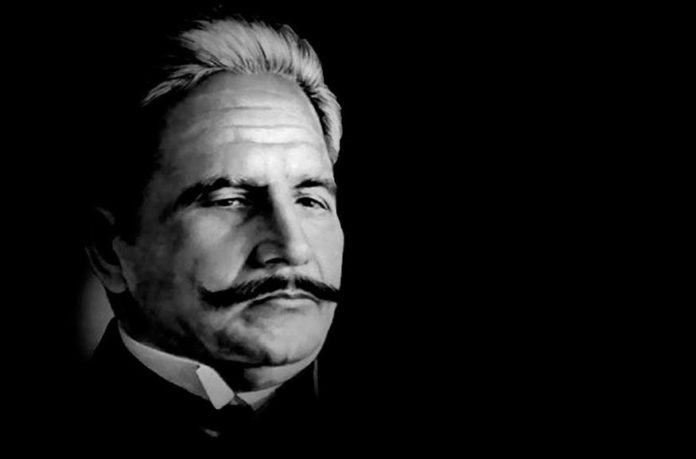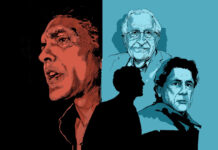Allama Mohammad Iqbal was one of the most popular and well-respected personalities of the 20th century in the Muslim world. He was a poet, a scholar and a reformer. His collection of six lectures titled The Reconstruction of the Religious thought in Islam touched the minds and hearts of millions of Muslims all over the world. No wonder multiple editions of the book were published by several publishers in India and Pakistan in the last seventy years.
When I started reading those lectures I soon realized that I had to read every sentence, every paragraph, every page and every lecture more than once to understand the essence of Iqbal’s philosophy. I was impressed by Iqbal’s scholarship and the way he articulated his ideas and ideals. Iqbal’s book deserves serious and special attention by all those who have a keen interest in the relationship between science and religion, psychology and philosophy, as Iqbal tried to build bridges between these disciplines.
In his lectures Iqbal discussed different forms of human experience. He separated rational and analytical experiences of philosophers and scientists from spiritual experiences of mystics and prophets. Iqbal believed that spiritual experiences were superior to rational experiences because mystics and prophets had direct experience of Reality. He believed that mystics and prophets used intuition while scientists and philosophers used intellect. Accepting Bergson’s theory, he believed that intuition was better than intellect and wrote, “…intuition, as Bergson rightly says, is only a higher kind of intellect.” (Ref 1, p 3)
Iqbal acknowledged the role of Greek philosophers in the evolution of Muslim philosophy especially during the Golden Period when Muslim philosophers like Al Kindi, Al Razi and Al Farabi translated Greek philosophers into Arabic and became a bridge between Greek and European philosophers. He wrote, “As we all know, Greek philosophy has been a great cultural force in the history of Islam.” (Ref 1, p 3) But Iqbal felt that it was a mixed blessing. It added to Muslim thought but it also subtracted something as it distracted Muslims from the teachings of Quran and Islam.
Iqbal also expressed mixed feelings about Ghazali. He praised Ghazali for acknowledging the significance of the mystical experience but criticized him for seeing the mystic experience in conflict with the analytic experience. Iqbal believed rational and intuitive, scientific and religious experiences complemented rather than contradicted each other although spiritual experience was at a higher level than analytical experience.
Iqbal asked Muslims to open the doors of ijtehad again and reinterpret Quran in the light of contemporary knowledge.
Iqbal felt sad when he realized that Muslims, who were at the cutting edge of knowledge in their Golden Period, became stagnant and lost their leadership in the world of science, medicine, psychology and philosophy. In the last few centuries Europeans took the lead and Muslims were left behind. Iqbal suggested to Muslims that the time had come to revise and reconstruct Islamic philosophy by using ijtihad—reinterpretation of Quran in the light of modern knowledge. He wrote, “With the reawakening of Islam, therefore, it is necessary to examine, in an independent spirit, what Europe has thought and how far the conclusions reached by her can help us in the revision and, if necessary, reconstruction, of theological thought of Islam.” That is why he titled his book The Reconstruction of Religious Thought in Islam. Iqbal believed that the teachings of Islam were significant because Islam and Quran had offered a special “message to humanity.” (Ref 1, p 8) Iqbal believed that Muslims should take the initiative and then God would help because God helped only those who helped themselves.
Iqbal offered new interpretations to the verses of Quran which were metaphorical rather than literal. One such example was his statement,
“Heaven and Hell are states, not localities.” (Ref 1, p 123) They are states of mind and states of ontological struggle and success.
Being a poet and philosopher Iqbal was more fascinated by the metaphorical than the literal, by the spiritual than the material, by the abstract than the concrete aspects of life. That is why he wrote, “…all human life is spiritual in origin.” (Ref 1, p 146)
Iqbal’s ideas of the spiritual extend from one human being to all of humanity. No wonder he liked theocratic states more than secular states. He wrote, “The State according to Islam is only an effort to realize the spiritual in human organization. But in this sense all State, not based on mere domination and aiming at the realization of ideal principles, is theocratic.” (Ref 1, p 155)
Iqbal rejected the idea of a secular state in which religion becomes a private affair while the affairs of the state are run by secular laws where all citizens, especially women and minorities, have equal rights and privileges. He wrote, “Thus the Quran considers it necessary to unite religion and State, ethics and politics, in a single revelation much in the same way as Plato does in his Republic.” (Ref 1, p 166)
Iqbal asked Muslims to open the doors of ijtehad again and reinterpret Quran in the light of contemporary knowledge so that Islam could have a second coming and Muslims could lead the world in science and medicine, psychology and philosophy, economics and politics, the way they did in their Golden Period.
He wrote, “The closing of the door of ijtehad is pure fiction suggested partly by the crystallization of legal thought in Islam, and partly by that intellectual laziness which, especially in the period of spiritual decay, turns great thinkers into idols.”
Iqbal believed that Islam and Quran had a special form of government to suggest. Iqbal believed that it was a form of democracy but it was not a Presidential or Parliamentary democracy; it was a democracy that was guided by the teachings of Islam and Quran and led by divine revelations. That is why Iqbal called it “spiritual democracy which is the ultimate aim of Islam.” (Ref 1, p 189)
How successful Iqbal was in his goal and how realistic his diagnosis and prescription for the sufferings of Muslims is an open question.
In his lectures Iqbal offered his new interpretation of Islam and Quran to make it contemporary. He tried to awaken Muslims from their intellectual stupor of the last few centuries. How successful Iqbal was in his goal and how realistic his diagnosis and prescription for the sufferings of Muslims is an open question. Various Muslim and Non-Muslim scholars and philosophers have differing views about Iqbal’s philosophy. I will quote just one Muslim scholar, Ali Sardar Jaffri, who wrote, “Iqbal’s politics of anti-imperialism ran parallel to his Islamic spirituality, as a result of which he transformed an economic and political problem into an ethical problem. By doing so rather than solving it scientifically, he complicated the problem further. He arrived at the conclusion that the problems of imperialism and capitalism are the problems of materialism and those problems can be solved by spiritualism. Iqbal, being a sensitive poet and a great artist, hated imperialism and capitalism, but he could not imagine any realistic alternative. That is why he retreated into the past. That is an escapist attitude.” (Ref 2, p 31)
REFERENCES
-
Iqbal Muhammad The Reconstruction of Religious Thought in Islam Kitab Bhavan New Delhi India 2016.
-
Sohail Khalid, Latif Omar, Syed Abbas Progressive Ideas and Ideals in Urdu Literature Green Zone Publishing Canada 2016







